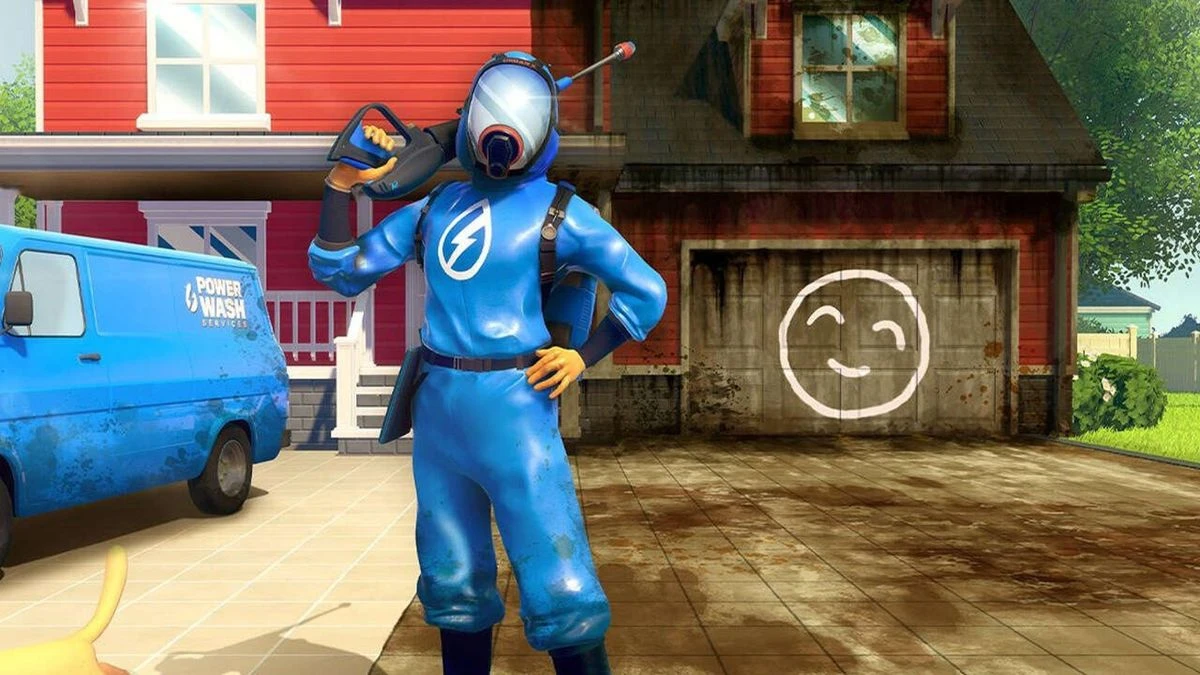Researchers at Oxford University found that playing PowerWash Simulator improved mood, but not as much as sex.
I appreciate that research scientists refuse to accept casual truths. A group of Oxford students asked, in essence: Do people feel good after playing PowerWash Simulator. The answer was: Yes, more than 70% of PowerWash Simulator users feel good after playing PowerWash Simulator.
Congratulations to the PowerWash Simulator's developers. How many games were deemed enjoyable by a team Oxford scientists?
Of course, there's more to it. Researchers at the Oxford Internet Institute, who conducted the study published in August, believe that videogame mood studies often focus on the long-term effects of games. But this may be putting the cart ahead of the horse. The researchers believe that understanding how videogames affect mood in the short-term is essential if we are to understand their long-term mental effects.
Researchers also have some problems with previous studies that looked at the mood-altering effects of games. They often used heavily modified games or those designed specifically for the study, rather than commercial games people would play for fun. They also tend to be conducted in a laboratory setting, rather than in a normal context, such as after a stressful workday, and they do not record how players feel at small enough intervals in order to determine, for example, how long a game takes to affect someone's first mood.
To solve these problems, the Oxford team collaborated with FuturLab, the developer of PowerWash Simulator to create a branch of the game which asked players about their mood at regular intervals. 8 695 players provided 162,325 “intensive longitudinal in-game Mood Reports” across 67,328 sessions.
PowerWash Simulator is officially a good game: 72.1% experienced "a small increase in mood" during play, and this boost occurred mainly within the first 15 minute of play.
Nick Ballou, a researcher, said: "Our study confirms what qualitative research and reports by videogame players from around the world have suggested for years: People feel good when they play videogames."
According to the researchers, although the reported mood improvement was not large, it was still greater than other studies that have linked mood increases with shopping, reading and watching television. However, compared to other studies, PowerWash Simulator didn't beat things like eating, listening to music, taking a stroll, or having sex. Maybe they'll make it in the sequel?
Researchers frame the unsurprising results as a stepping-stone on the way to answering larger questions about why videogames affect mood and how short-term "mood repairs" can lead to improvements over the long-term.
"We believe that our findings are consistent with the notion of gaming as a recovery activity, which helps manage daily stress and mood fluctuations without necessarily having significant long-term effects," said Professor Andrew Przybylski, senior author.
"The fact that we only studied one game--and that it is not likely representative today's most popular games--suggests that caution should be used in generalizing our findings to other video games." Future research should use randomized controlled trials in order to compare the effects of PowerWash Simulator and other games to other leisure activities or therapy interventions.
The effect of gaming on mood is a hot issue. I recently covered a Seattle-based firm that has just received FDA approval to treat anxiety with videogames using its biofeedback SDK. The company believes that games are a good way to treat mental issues, in part because if they are fun, patients will comply.
For more information on the results and methods, you can read the PowerWash Simulator full study here. The authors are Matti Vuorre. Nick Ballou. Thomas Hakman. Kristoffer Magnusson. Andrew K Przybylski.





Comments